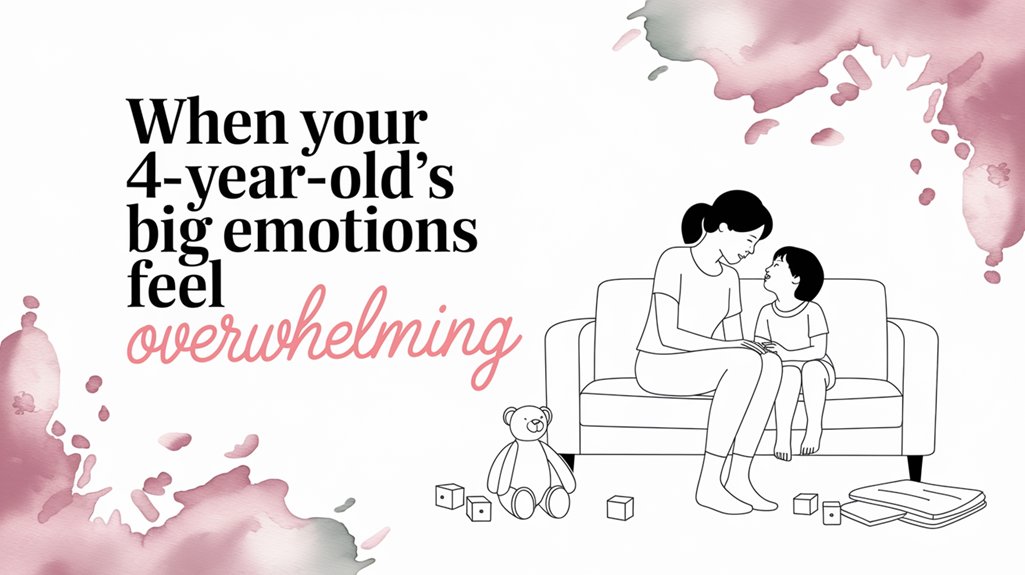Are you exhausted by your preschooler’s daily meltdowns? Feeling lost about whether their behaviour is typical or something more? Many Singapore parents face similar challenges, especially during this crucial developmental stage. Let’s explore what might be happening and how you can navigate these stormy waters with compassion.
A Parent’s Concern
“I’m really at my wits’ end with my daughter who’s turning 4 next month. She’s always been clever and ahead for her age—she can already recognize most letters and numbers, and she’s truly caring with her 1-year-old brother. But these daily meltdowns are exhausting us all!
The most confusing part is how she constantly flip-flops. Yesterday, during her afternoon rest time, she asked to nap in my bed instead of her own. After I tucked her in with her favourite blanket, she suddenly wanted her own room. Once we moved there, she immediately began crying that she needed to be in my bed again! When I firmly said no, she started screaming so loudly our neighbours could probably hear.
She’s quite clever with her delaying tactics too. She’ll urgently say she needs the toilet, but the moment we get there, she gives this little smile and says she doesn’t need to go anymore. When I offer her water from her bottle, she throws it down and says that’s not what she wanted.
I’ve tried everything from our preschool teacher’s recommended calm-down corner to consistent consequences. These episodes last at least an hour each time, sometimes right until her brother wakes from his nap. I’m ashamed to admit I sometimes lose my patience completely.
Our home is normally quite peaceful, and we have a good routine. Both my husband and I spend quality time with her, though I handle most weekday parenting while he’s at work. I keep wondering if this is just a particularly challenging phase or if we should consult our paediatrician about it.”
Our Parenting Guidance
What you’re experiencing is challenging but actually falls within the realm of normal preschooler development—though perhaps on the more intense end of the spectrum. Many Singapore parents face similar struggles, often behind closed doors.
At 3-4 years old, children are developing their sense of autonomy while lacking the emotional regulation skills to manage their feelings. This combination can create the perfect storm of meltdowns we often see in preschoolers.
Understanding the Behavior
Your daughter’s seemingly contradictory requests and frequent mind-changing aren’t necessarily manipulation tactics. Rather, they likely represent:
- Emotional regulation challenges: Her brain is still developing the ability to manage big feelings.
- A need for control: Preschoolers often feel powerless in a world where adults make most decisions.
- Connection seeking: The behaviour might intensify when she senses you’re busy or stressed.
- Possible sensory sensitivities: Some children react strongly to transitions or environmental factors.
It’s worth noting that intense temperaments can run in families, so if you or your husband tend toward anxiety or strong preferences, your daughter might simply have inherited this trait.
Creating Connection Before Correction
When dealing with frequent meltdowns, traditional discipline often falls short. Try this approach instead:
- Validate feelings first: “I see you’re really upset about nap time. It’s hard when things change.”
- Offer limited, genuine choices: “Would you like to nap with your blue blanket or your teddy today?” (But be prepared to stick with whatever she chooses)
- Pre-empt transitions: “In five minutes, we’ll be getting ready for nap time. What would help you feel ready?”
- Create visual schedules: Singaporean preschools often use picture schedules; consider creating a simple one at home.
Setting Loving Boundaries
Firm boundaries actually help children feel secure, but how we enforce them matters:
- Use “when/then” statements: “When you’ve calmed your body, then we can talk about what you need.”
- Be consistent but flexible: Maintain core expectations while allowing some negotiation within safe boundaries.
- Consider the nap question: At almost 4, some children no longer need daily naps. Observe if she shows genuine tiredness or if the nap battle might be worth phasing out.
- Focus on your own regulation: Take deep breaths before responding; children co-regulate with us.
Seeking Support When Needed
While your daughter’s behaviour seems within normal range, trust your parental instinct if you feel something more might be at play:
- Consult your paediatrician: Singapore has excellent early intervention resources if needed.
- Observe patterns: Note if meltdowns occur at specific times, places, or situations.
- Check with preschool teachers: Ask if they observe similar behaviours and what strategies work in the classroom.
- Consider your family history: If anxiety or other conditions run in your family, early support can make a significant difference.
A Few Kind Reminders
This challenging phase will pass. Your daughter isn’t giving you a hard time—she’s having a hard time. By staying calm (even when it’s difficult) and consistently responding with empathy, you’re teaching her the emotional regulation skills she needs.
Remember to take care of yourself too. Singapore parents often hold themselves to exceptionally high standards, but perfect parenting doesn’t exist. When you feel yourself reaching your limit, it’s okay to ensure she’s safe and step away briefly to regulate your own emotions.
Most importantly, those sweet moments between the storms are building your relationship. Make time for connection without demands—just 10-15 minutes of child-led play each day can significantly reduce challenging behaviours.







